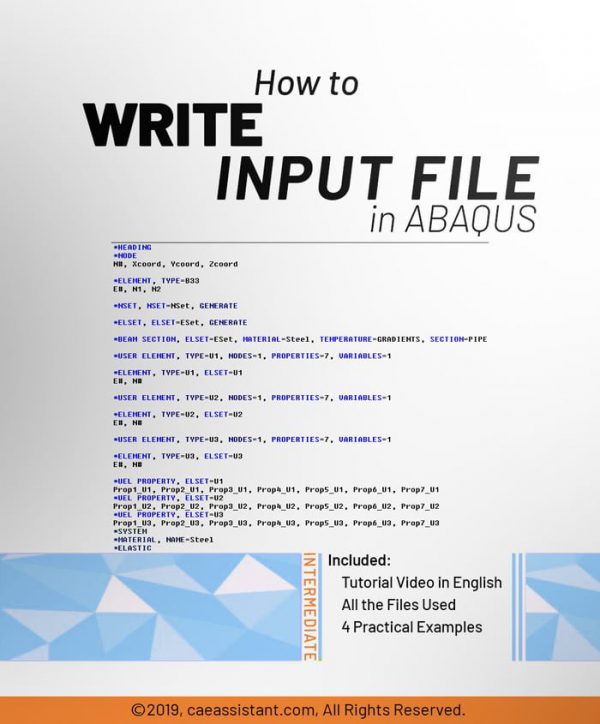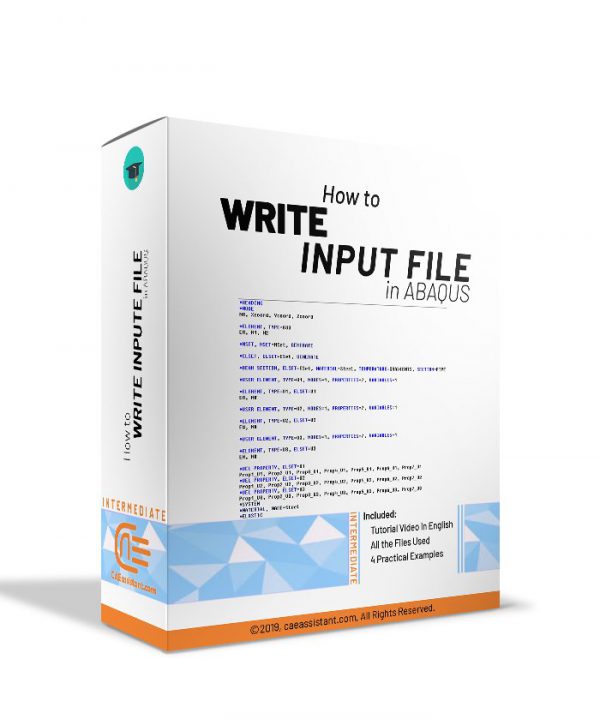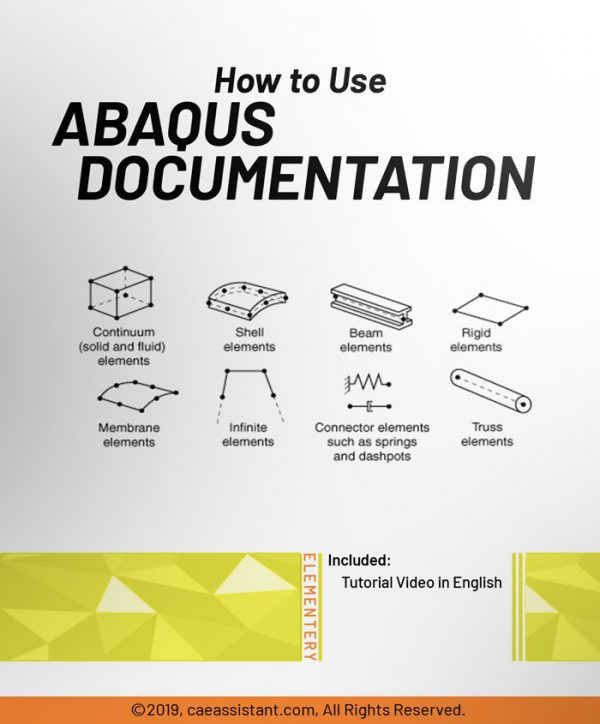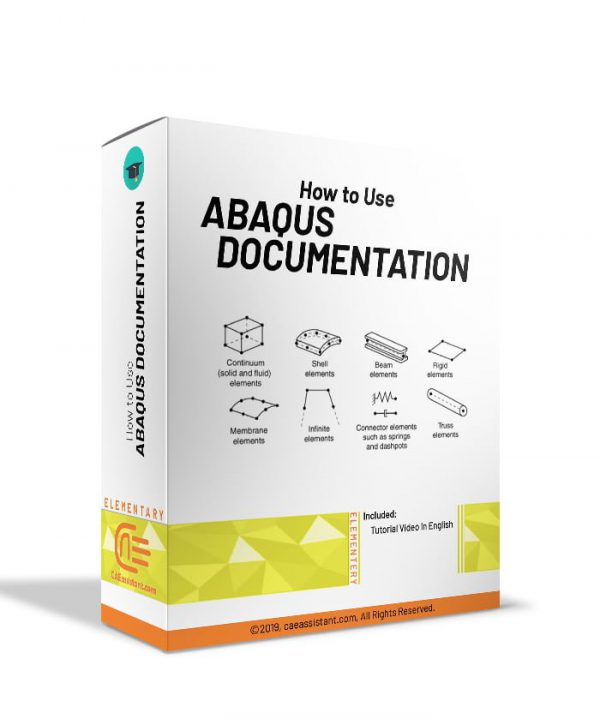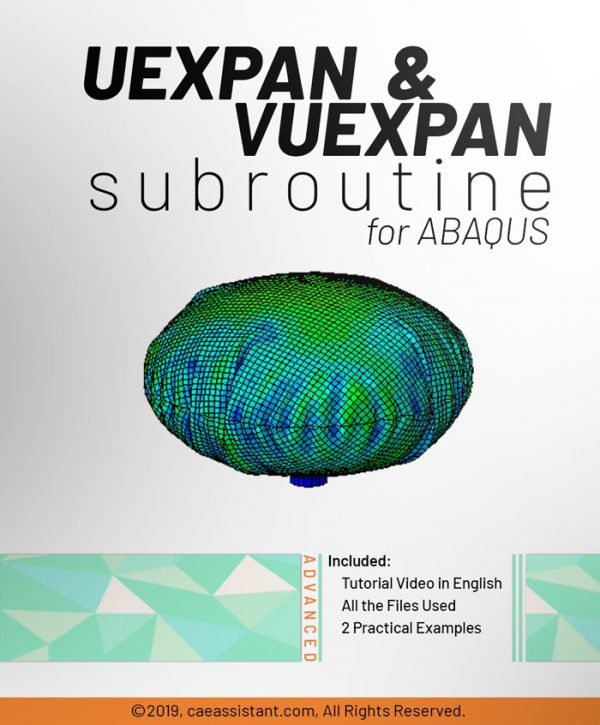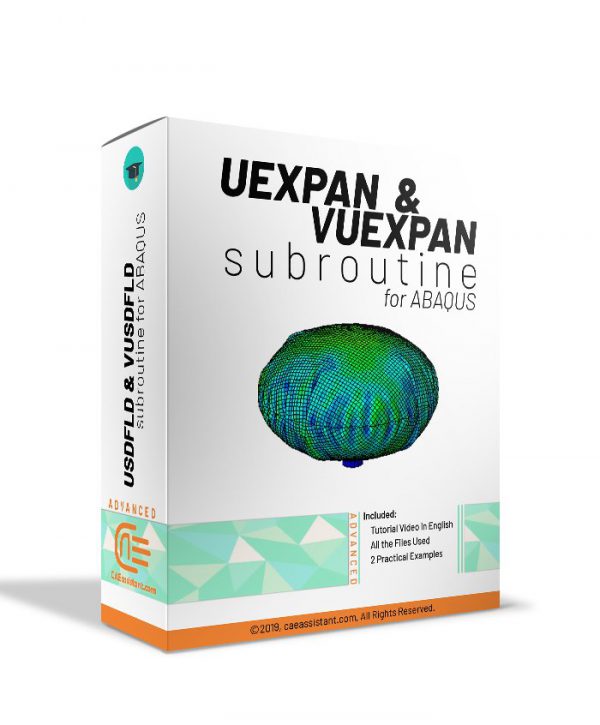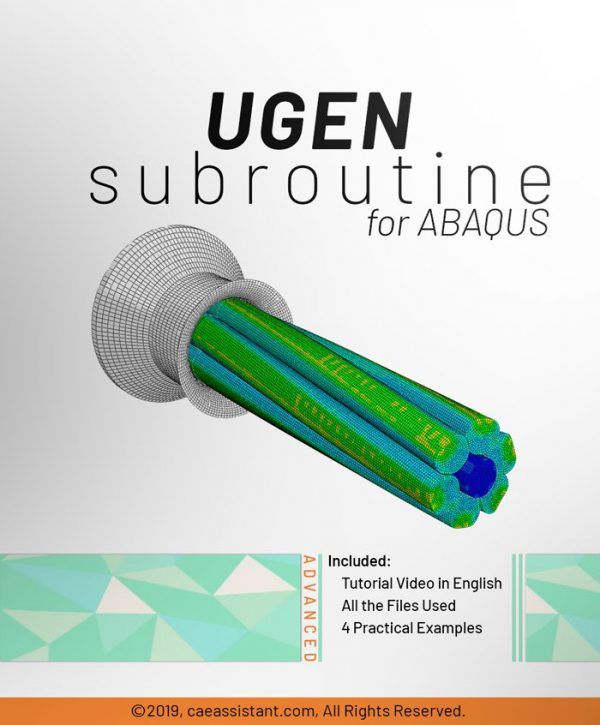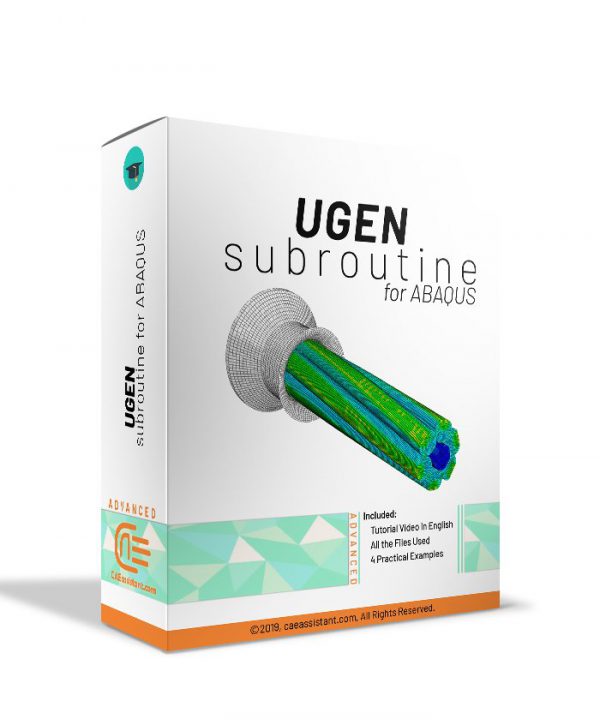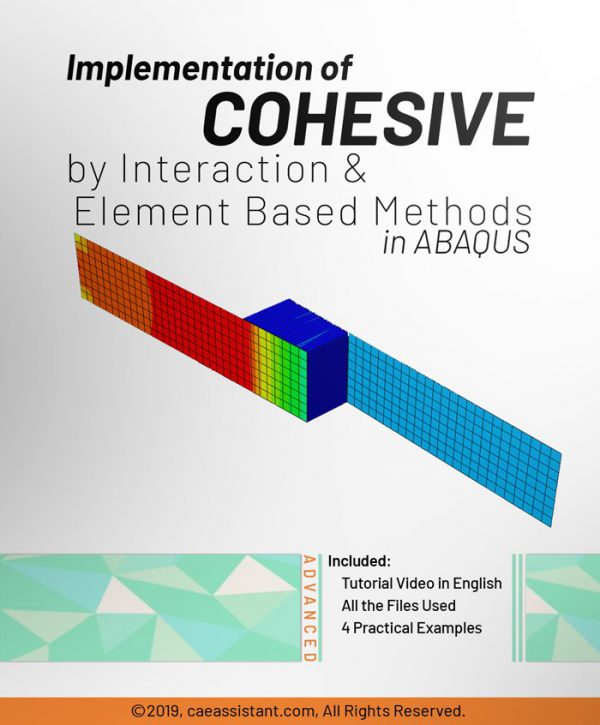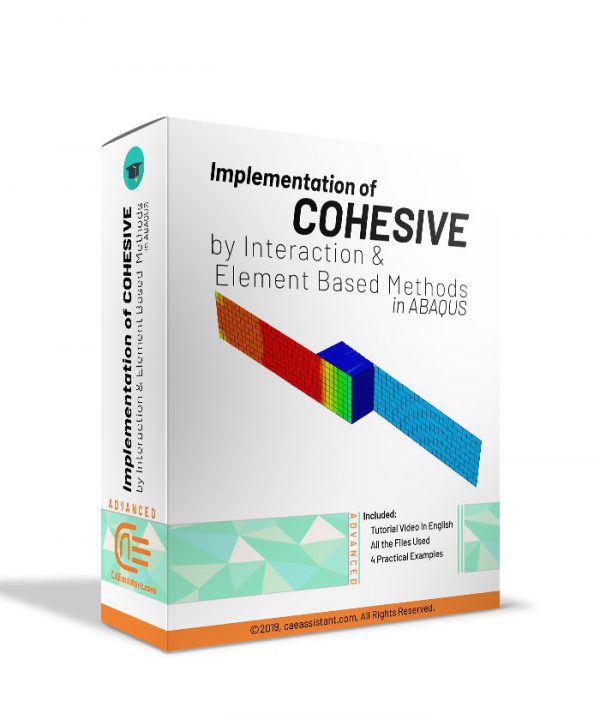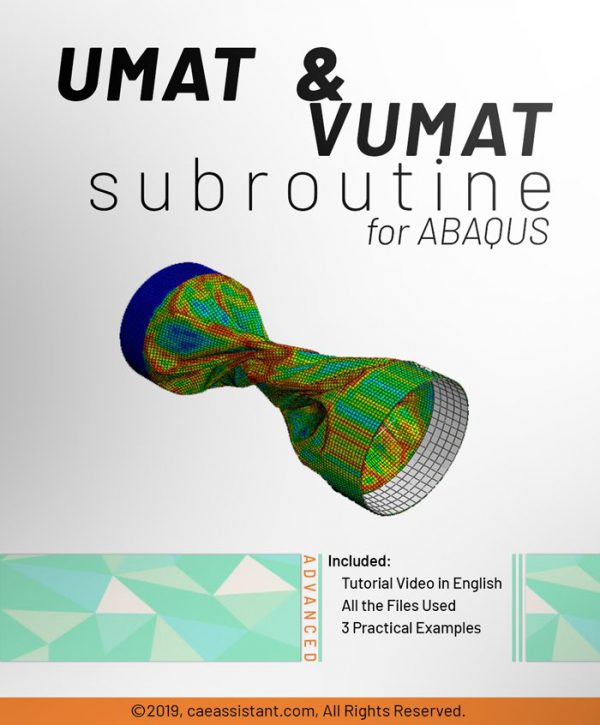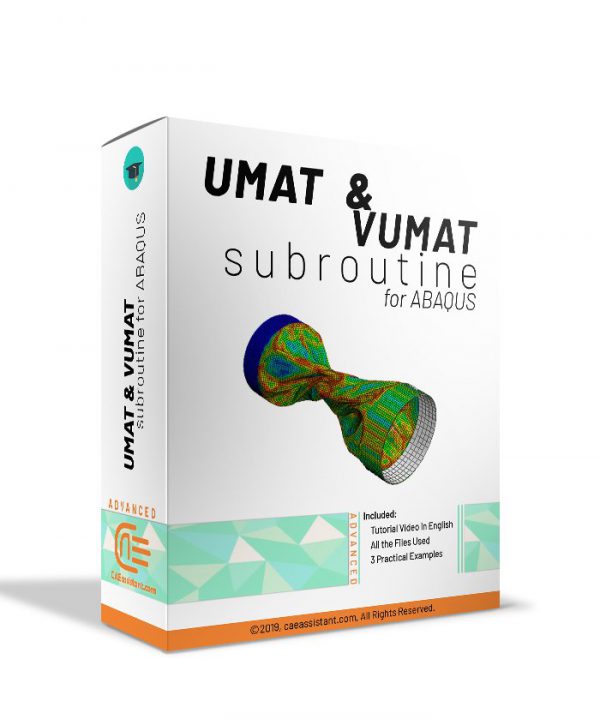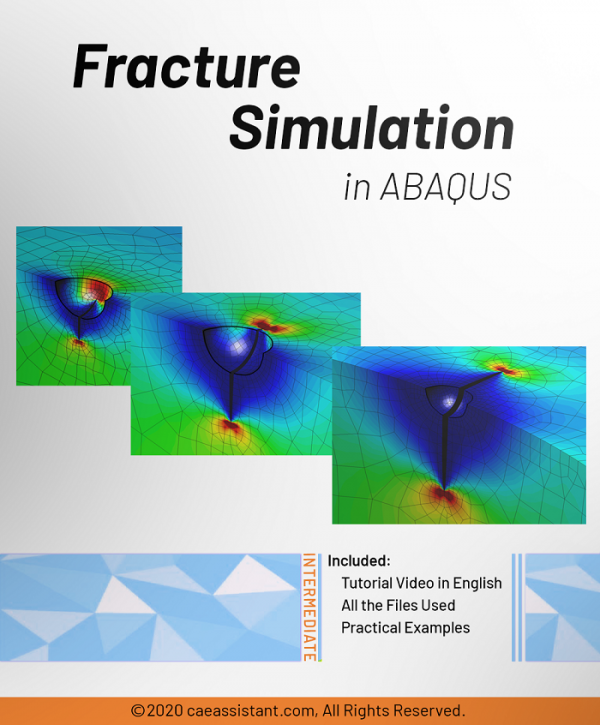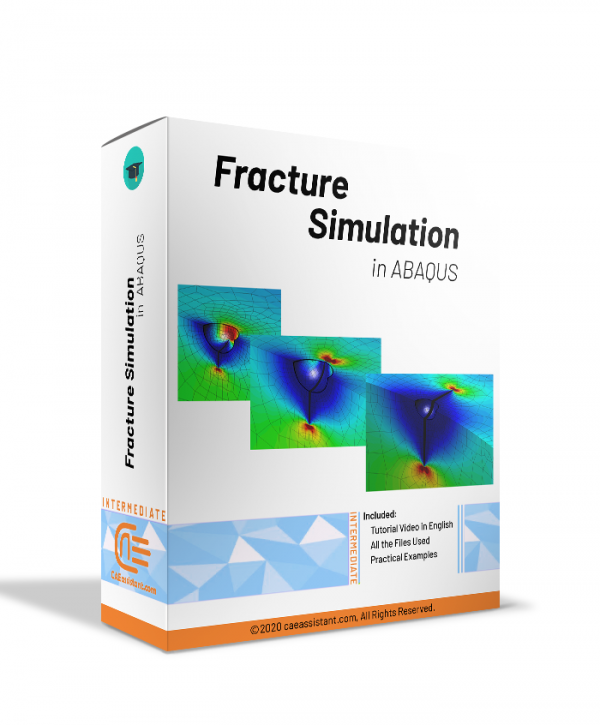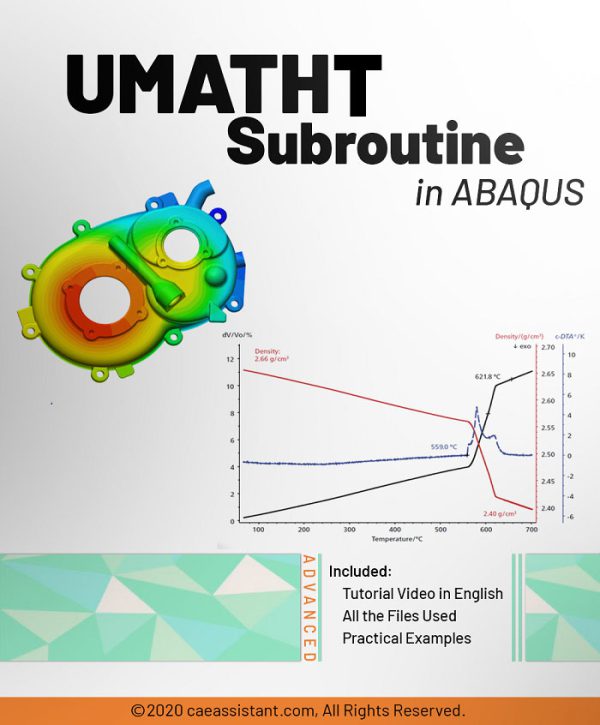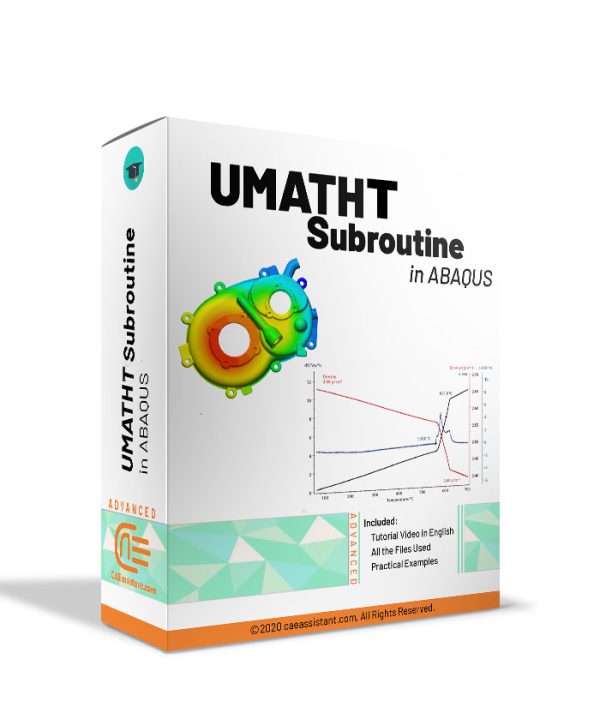.inps,video files, Fortran files (if available), Flowchart file (if available), Python files (if available), Pdf files (if available)
How to write input file in ABAQUS
How to use ABAQUS Documentation
This package teach you how to simulate your customized problem by using help to find similar problems and execute them, theories, using scripts and subroutines and etc.
UEXPAN and VUEXPAN Subroutine
This tutorial teach how to define incremental thermal strains as functions of temperature, predefined field variables, and state variables loads. UEXPAN and VUEXPAN subroutines are used for implicit and explicit solvers respectively.
UGEN Subroutine in ABAQUS
This tutorial is given the shear and bending forces as the output of the subroutine where the shell mechanical behavior is nonlinear and can only be presented on the basis of general terms of the shell matrix and such behavior is not present in the ABAQUS graphical environment.
Implementation of Cohesive by interaction & element based methods in ABAQUS
This package teaches you how to choose the method and apply cohesive modeling for various simple and complex problems. The training package also teaches you how to define the basic geometry of the adhesive elements and how to define the mechanical behavior in elastic and damaged regions in ABAQUS FEM software.
UMAT Subroutine (VUMAT Subroutine) introduction
This package is usable when the material model is not available in ABAQUS software. If you follow this tutorial package, including standard and explicit solver, you will have the ability to write, debug and verify your subroutine based on customized material to use this in complex structures. These lectures are an introduction to write advanced UMAT and VUMAT subroutines in hyperelastic Martials, Composites and Metal and so on. Watch Demo
